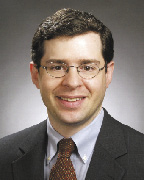The United States Tax Court recently ruled that time that a taxpayer was 'on call' to perform real estate activities did not count for purposes of determining whether the taxpayer had performed a sufficient number of hours in real estate related activities.
The Internal Revenue Code disallows losses that are generated from passive activities. A passive activity is any trade or business in which the taxpayer does not materially participate. A rental activity is generally treated as a passive activity regardless of whether the taxpayer materially participates; however, there are two significant exceptions to this general rule.
One of those exceptions - which was the subject of the court's decision - provides that the activities of a taxpayer who is considered a real estate professional will not automatically be considered passive. A taxpayer qualifies as a real estate professional if (i) more than one-half of the personal services performed in trades or businesses by the taxpayer are performed in real property trades or businesses in which the taxpayer materially participates, and (ii) the taxpayer performs more than 750 hours during the taxable year in trades or businesses in which the taxpayer materially participates. For a joint return, this test is satisfied if either spouse separately satisfies these requirements.
In Moss v. Commissioner, a husband and wife, who owned several rental properties, contended the time that the husband was available to work on the rental properties should be counted toward the 750-hour threshold. Moss submitted evidence that he had spent approximately 645 hours performing various activities on the properties, including maintenance, monitoring, eviction of nonpaying tenants and collecting rents. In order to meet the 750-hour threshold, he contended that time that he was available to deal with the rental properties should be counted toward meeting the threshold. The court, in rejecting the taxpayers' argument, emphasized that it is the actual performance of real estate services that counts- not the possibility of performing services.
If you own rental property and want to avoid the passive activity loss disallowance, it is critical that you satisfy one of the exceptions to the general rule that rental activity is passive. To meet the real estate professional exception, you must meet the 750 hour test by performing services. Make sure to document those services in as much detail as possible.
John Varella is an attorney with Lourie & Cutler, Boston, Mass.
Tags:









